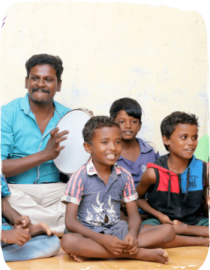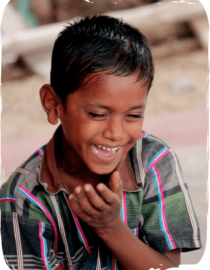India
India
Our hubs
Paper Boat currently operates 18 Children’s Hubs in Tamil Nadu, India.
- 13 are in the poor rural locations of the Kovilpatti District, Tamil Nadu. The children are predominantly from Dalit (former ‘untouchable’) villages and communities, designated as ‘Most Backward Caste’ or ‘Other Backward Caste’ and falling below the poverty line.
- 5 hubs are in Urban Deprived Areas (formerly referred to as ‘urban slums’) where the majority of children will also come from Dalit or ‘backward caste’ communities.
Each hub caters for between 25-30 children with approximately 540 children being direct beneficiaries of the Children’s Hub activities.
The 18 hubs are part of a wider support infrastructure aimed at ensuring the whole community (including village councils, village education committees, schools and parents) recognizes and values youth agency and creative learning spaces.
Paper Boat conceptualises ‘learning space’ as much broader than the ‘physical space’ where children come to learn (either the formal school building or the Children’s Hub).
Through innovative local partners we are expanding programmes into hard to reach Koravar and Irular communities in the northern parts of Tamil Nadu.
Invisible Communities/Silenced Voices
Children who come from ‘invisible’ communities like the Koravar and the Irular not only experience high levels of socio-economic exclusion but also frequently face systemic abuse and human rights violations – compounding the difficulties they face in formal learning environments. For example, the Koravar have been labelled as a ‘criminal caste’ – a phenomenon with its roots in the colonial administration of India – the community is widely seen as ‘criminal or deviant from birth’. As such adults are vulnerable to false imprisonment and systematic police abuse, children are labelled deviant in school and experience substantial pressure to drop out.
The Irular tribal communities are particularly vulnerable to bonded labour – the most common form of modern slavery which occurs when a person is forced to pay off a debt, often tricked into working for little or no pay and with no control over their debt. It has been common in many industries in Tamil Nadu including silk looms, rice mills and brick kilns. In the worst cases children as young as 5 work for 12-14 hours a day and UNICEF highlight that bonded labour ‘usually keeps children out of school, in poor health and subject to psychological and physical abuse’.
It is well documented that children who come from Dalit (former ‘untouchable’) communities experience what is often referred to as a ‘wounded psyche’. Having been told from birth that they are ‘impure, unclean and inferior’ owing to their subordinate position in the stratification system (falling outside the accepted ‘caste system’) – they experience low levels of self-esteem and self-belief which have a knock on effect on their educational chances.
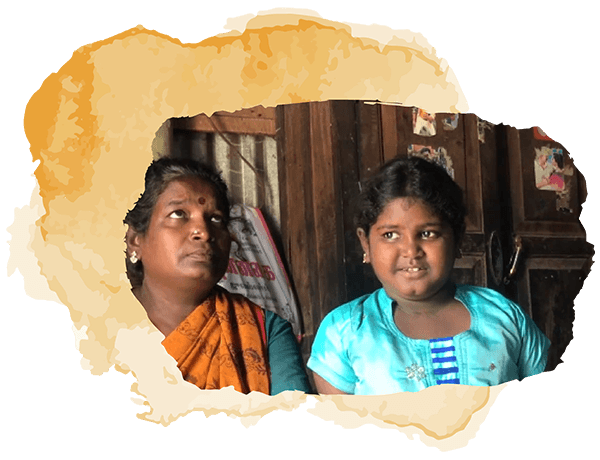

Kovilpatti
Kovilpatti is an area renowned for matchstick production. This industry combined with the high prevalence of poverty makes it a region where early school drop-out, child-labour and early marriage of girls have all been issues of major concern. Most of the children reached by Children’s Hubs in Kovilpatti are from Dalit (“untouchable”) families with the mix and composition of children from children castes within each hub reflecting the broader composition of each village.
The photographs of villages in Kovilpatti were taken by children from the hubs, so we can see their world through their eyes.
Madurai
In Madurai, a city of just over a million, more than quarter of a million people are living in urban deprived areas (“slums”). Within these areas children and communities face poor infrastructure, informal and unstable incomes, high school drop-out rates and barriers to education, alienation, caste tensions, high crime rates, and prevalent gang and drug culture.

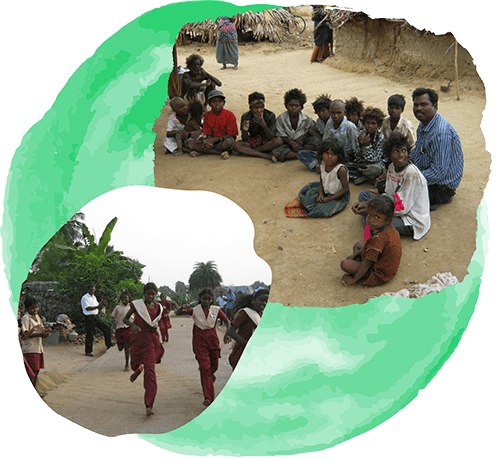
Kancheepuram
Kancheepuram is a traditional centre of silk weaving and handloom industries. The municipality has more than the national average rate of child labour and bonded labour. The Irula Tribe are a minority within the community, as 0.09% of the total population of Kancheepuram is formed by members of ‘scheduled tribes’ such as Irula. Within the villages occupied by the Irula Tribes traditional mud huts are common and these areas are susceptible to flooding that puts both buildings and scarce water supplies in jeopardy.
Thanjavur (Tanjore)
Thanjavur district located on the Cauvery River delta and is often referred to as the Rice Bowl of Tamil Nadu. Agriculture is the main occupation of people of Thanjavur district. Our partners work with those on the margins of this community who are seen as ’criminal’ from birth.
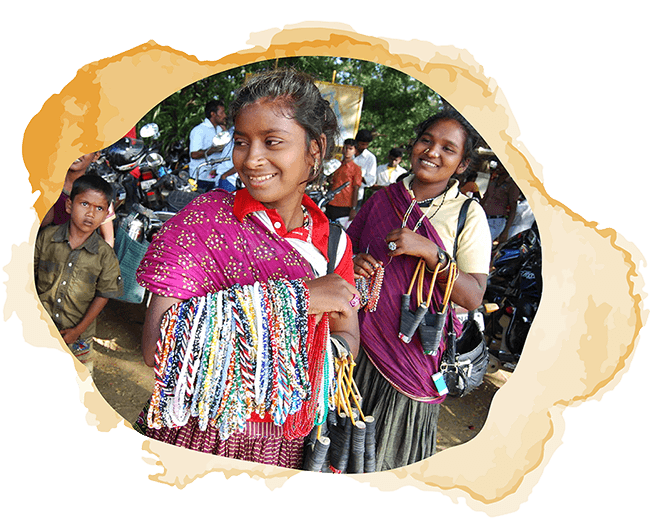
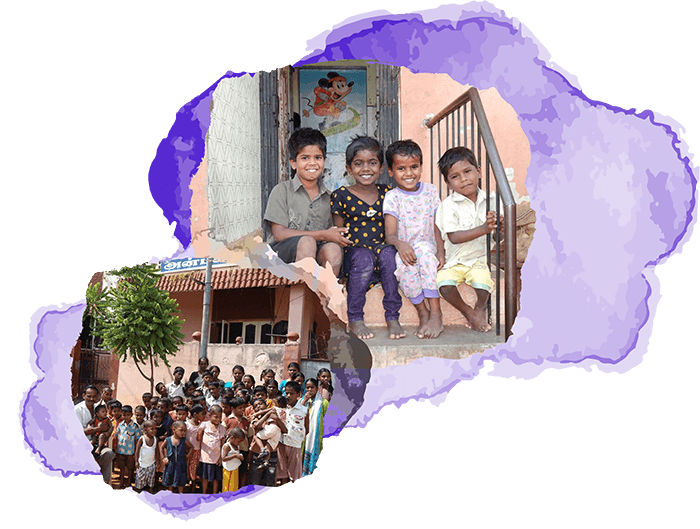
Dindigul
Dindigul, a district north of Madurai, is historically the land of iron locks and leather tanning. As elsewhere, there is also a high level of stigma surrounding HIV/AIDS, and as such children born with a viral presence may be abandoned. Our partners in Dindigul provide a safe loving home and quality care for children who have been orphaned and/or abandoned, and where there is no alternative.

